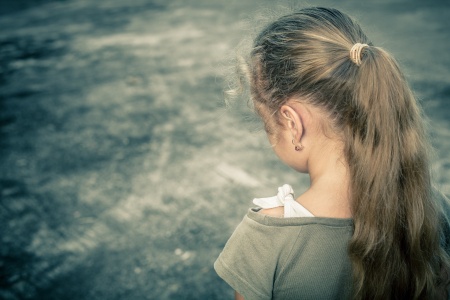Young people with conditions such as depression, autism or ADHD and their parents and teachers could be assessed online to get them the help they need as soon as possible.
A new European trial led by the University of Aberdeen and run in the Scottish Highlands and Finland will use the new approach to see if it leads to healthier, happier children and young people than the current system.
It is widely acknowledged that the need for child and adolescent psychiatry services in the UK is greater than can be provided.
The main problems are insufficient numbers of psychiatrists/specialists; long waiting times; limited capacity among primary care services and a heavy travel burden for both patients/their families and for outpatient specialists.
GPs say they do not have the time or training to accurately diagnose children and young people and therefore potentially refer them to inappropriate support services – i.e. child psychologist, social services or general paediatric clinics.
As such, the process of making a successful referral for a child to the appropriate service can be drawn out and stressful and can be particularly damaging for children when their condition requires early treatment before problems become intractable.
A new trial will see parents of children, their teachers and (if he or she is 11 years old or older) the child themselves, take secure, structured computer psychiatric interviews specially designed to build up a detailed psychiatric history of the patient and give an accurate diagnosis. This online information will be assessed by a psychiatrist and a recommendation made about the right service for the child or young person.
It is hoped that the new Development and Wellbeing Assessment (DAWBA) will result in children or young people being referred to the most appropriate services more quickly and with less stress, ultimately produce measurable improvements in child mental health 6 in months’ time.
Tests of the system show DAWBA’s diagnosis success rate to be around 80-90%.
The project is a major collaboration with partners in Finland, Sweden and Norway and is funded by the European Northern Periphery and Arctic Programme.
The partners presented a public seminar on the project and other aspects of the research programme at the Centre for Health Science, in Inverness on Thursday March 30.
During the trial, which will take place in the NHS Highland region, 50% of patients will receive the DAWBA system and 50% will receive the current treatment.
There are four broad categories that can classify the psychiatric condition of a child or young person, though in many cases patients can overlap two or more:
- Anxiety, depression, Obsessive Compulsive Disorder, phobias
- Attention Deficit and Hyperactivity Disorder
- Autism, Asperger’s syndrome
- Oppositional and Conduct Disorders
There are also some rarer conditions to be considered, such as schizophrenia.
How it works:
After meeting with their GP, a parent will be given a set of codes to log in to the secure computerised system where they will answer a series of interview questions lined up with the appropriate diagnostic systems.
If the child is under 5 years old, the parent alone would be interviewed.
If the child is over 5 years old, both the parent and the child’s teacher would be interviewed.
If the young person is 11 years old or over, the parent, teacher and child would be interviewed.
Once the interviews are completed the resulting information is passed to a child psychologist who looks at a computerised summary of the data and makes a diagnostic assessment.
Professor Philip Wilson, head of the University of Aberdeen’s Centre for Rural Health says: “This is an important trial to test a new service which could ultimately lead to a slicker, more thorough and effective system for psychiatric referral for children and young people.
“The current system is inefficient at best and often results in families being sent from pillar to post due to inaccurate or non-comprehensive diagnosis. It’s bad for the children and young people, for the parents and teachers, and the GP who has to manage a situation which is often drawn out and frustrating for all involved.
“It is our hope that the new system will contribute to improved and more equal access to timely outpatient psychiatry services, specialist evaluation and treatment according to best practice, improved capacity in primary care and more rational use of specialist services.”
Project Partners: The Norwegian Centre for E-health Research, University of Aberdeen; University of Eastern Finland; Kuopio University Hospital (a sub partner of the University of Eastern Finland); Luleå University of Technology.
Associated partners: County Council of Norrbotten; Agency for Health and Prevention (Greenland)


